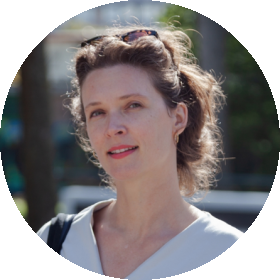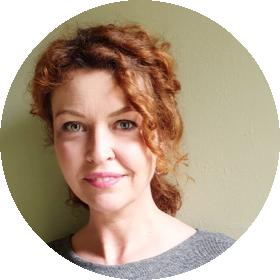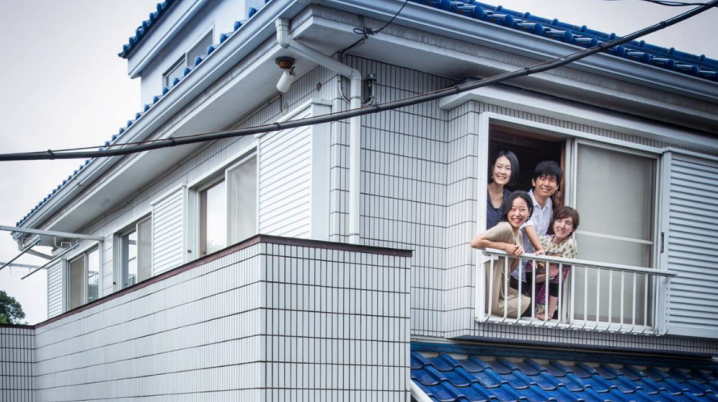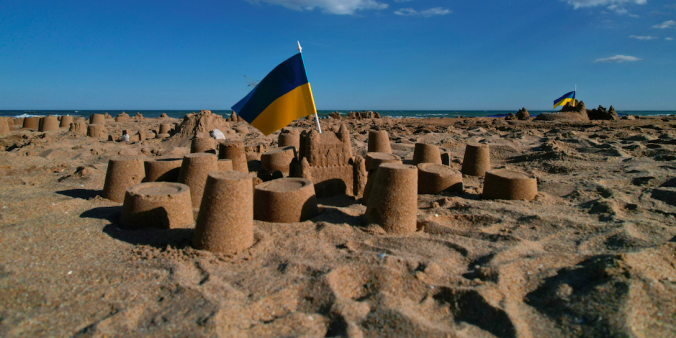Co.iki Residency is situated in the western part of Tokyo, Japan. Initiator Yoko Negami describes the venue as a typical Japanese house; featuring tatami floors and sliding doors, located in a residential area with plenty of greenery. It overlooks Sakura trees and farming grounds shared with the residents, providing a unique vista considering it is situated in a large metropolitan city like Tokyo.
Yoko explains that she used to work on residency projects with international artists and observed that they wanted to experience the local life in Tokyo. The residencies would usually provide the artists with a flat within the metropolitan area. However, bringing them in touch with the local scene was something that had to be coordinated. Yoko on the other hand, wanted this interaction to happen more naturally, which served as a point of departure for Co.iki; the reciprocity between artist and residents, co-living and co-creating in a space that feels like home.
While selecting a residential area for her residency, Yoko admits that she had prejudices about how local Japanese people might react to foreign artists in their neighbourhood. Her worries disappeared after witnessing how kind and welcoming her guests were received. These warm exchanges now seem to be transforming into a feeling of solidarity in the face of the Russian invasion of Ukraine.
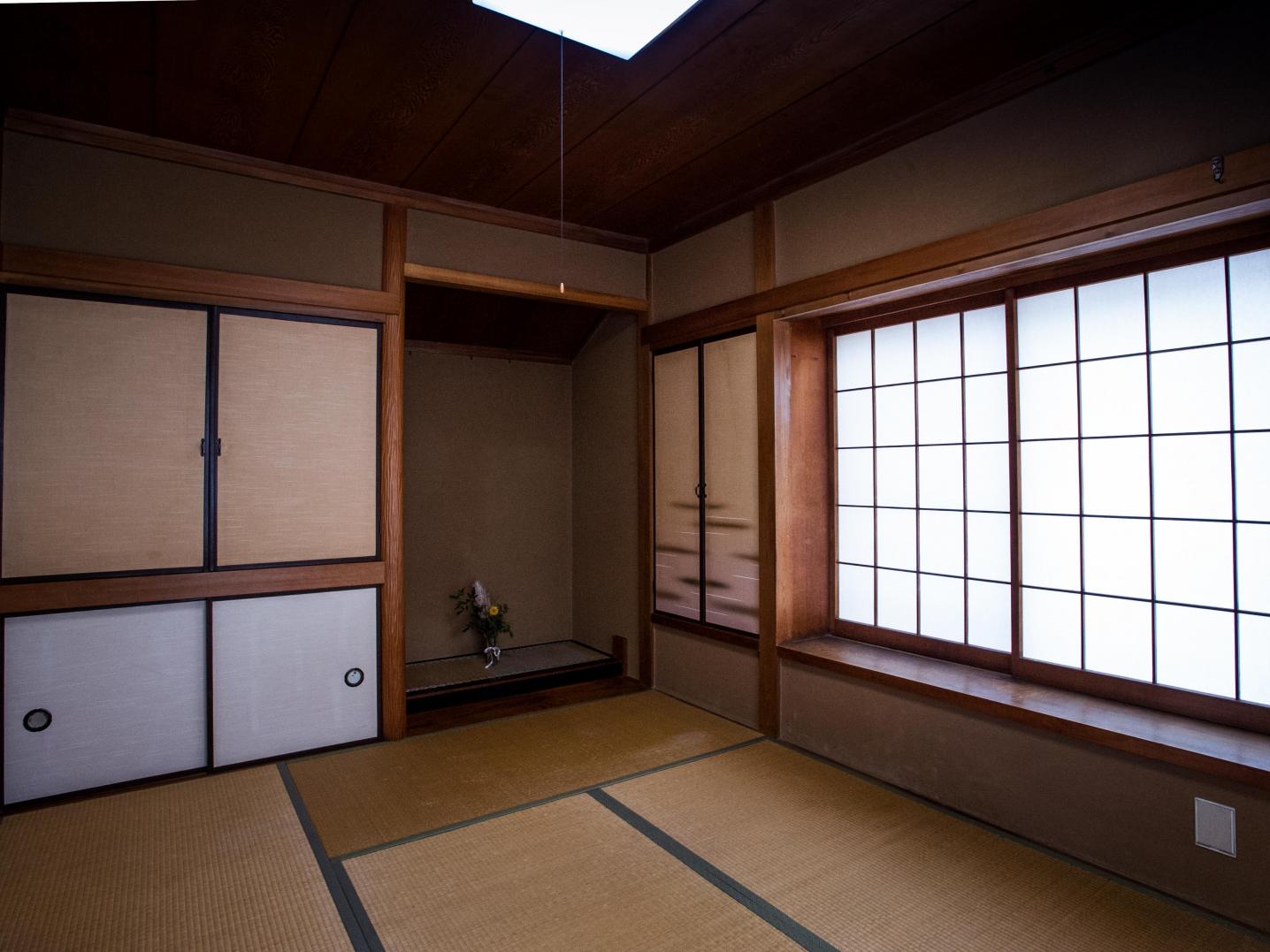
Solidarity
“Just today, our neighbours brought Ukrainian-colored homemade bread and Ukrainian-colored flowers,” says Yoko, smiling. The neighbors wanted to show their support for Nana, one of the Ukrainian artists hosted at Co.iki.
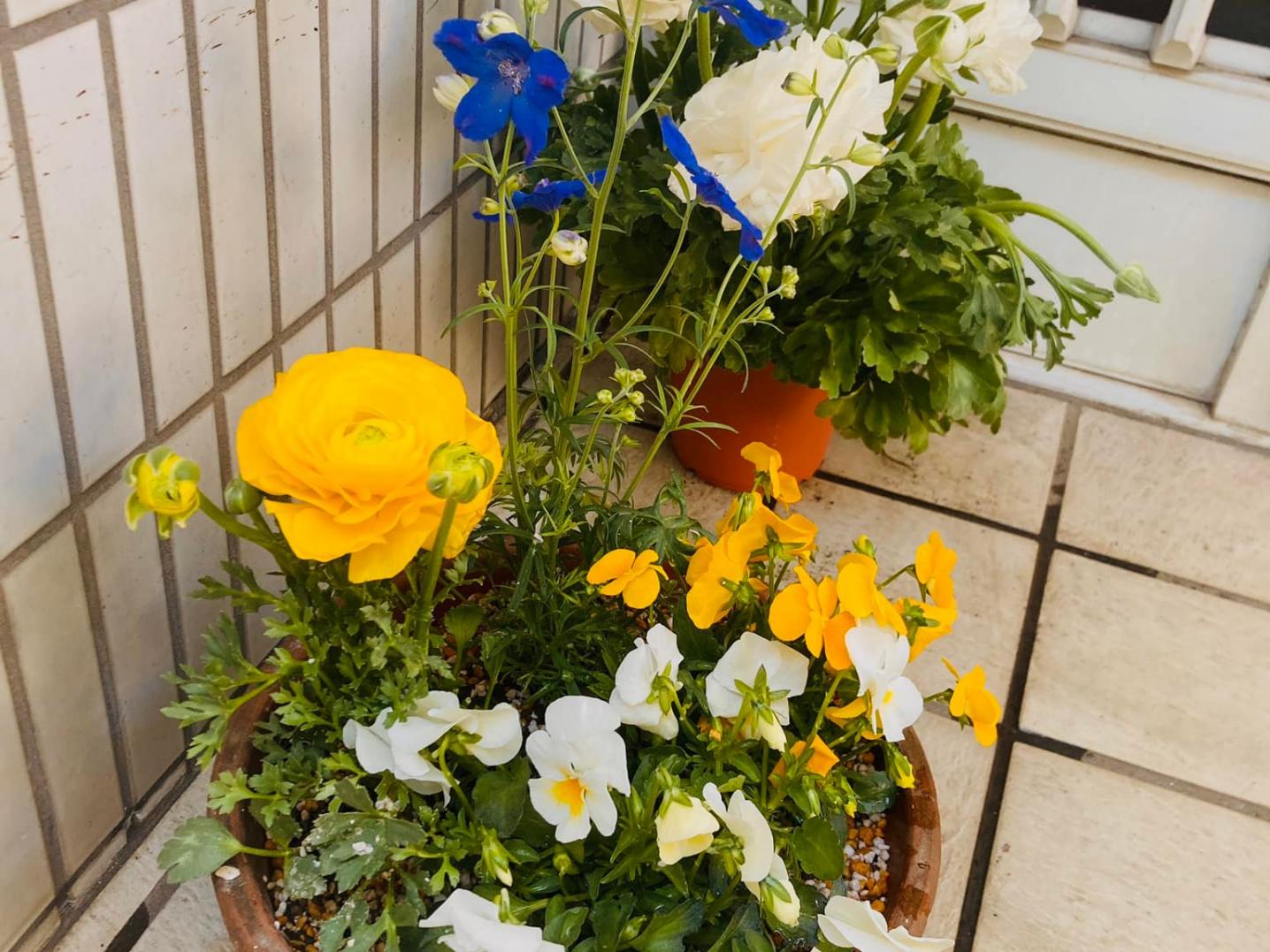
Long-term connections
Yoko is also facilitating the experimental remote residency program Polytopia, exploring themes such as locality and physicality, in collaboration with creators from India, Indonesia, Myanmar, Taiwan, Nigeria, and Ukraine. There are two Ukrainian participants: Nana Biakova, a visual designer and performance artist staying at Co.iki, and Olia Fedorova, a multidisciplinary conceptual artist participating online from Kharkiv, Ukraine a city caught in the middle of the ongoing conflict. "We didn't expect this war to happen, but we could still find ways to work together, even remotely," Olia explains. She's participating in the remote residency for the second time, as Yoko believes in building long-term connections with artists.
The COVID-19 pandemic had already forced Yoko to reflect on the position of residencies in times of crisis. Yoko considers residencies as a 'space' for artists to bring in their perspectives, interact and exchange ideas, and an opportunity to build relationships. “This is something that we can still facilitate,” she says. This is reflected in the way that Yoko is supporting the two Ukrainian artists. Nana has been in Japan for two years since she couldn't return to Ukraine due to the COVID-19 pandemic, and then her plans to go back fell through again because of the war. “She is kind of stuck,” explains Yoko. “It is very painful for her to see this disaster and brutality from a distance. There was of course a lot of struggle, but we talked and talked and she decided to stay longer and build her future in Japan."
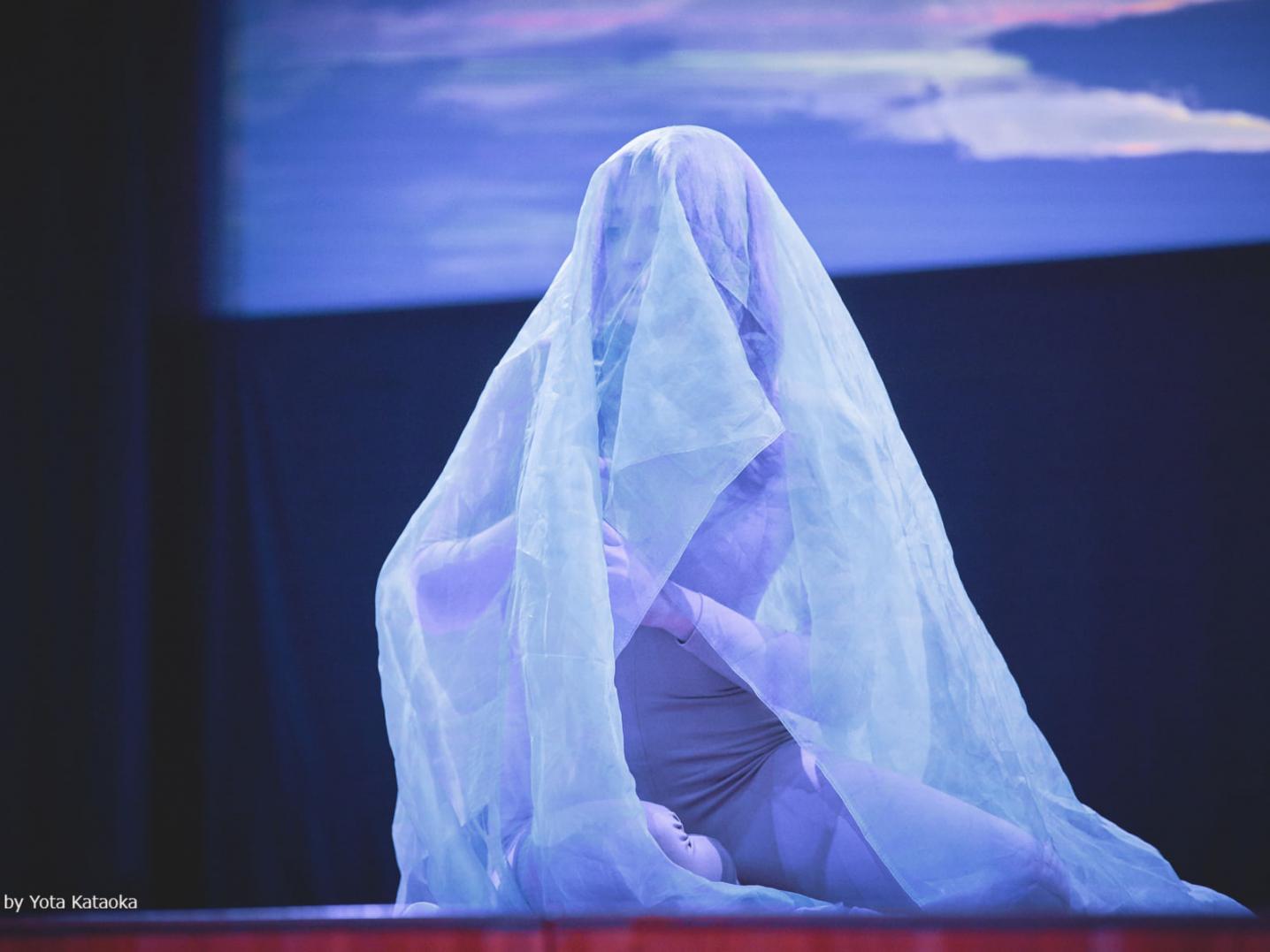
Working from a shelter
Olia, on the other hand, is participating from Kharkiv, one of the most devastated cities in Ukraine. “She is actually in a shelter now, working with texts and words,” says Yoko. Whenever the internet connection is available, the two reach out to each other through video calls and text messaging. Yoko explains that Olia is not always in the shelter, but goes back and forth from her apartment depending on whether there are bombings. She utilises whatever is available to her, for example, she writes on the fabric she found in her apartment. Yoko: "It is transformative in a way."
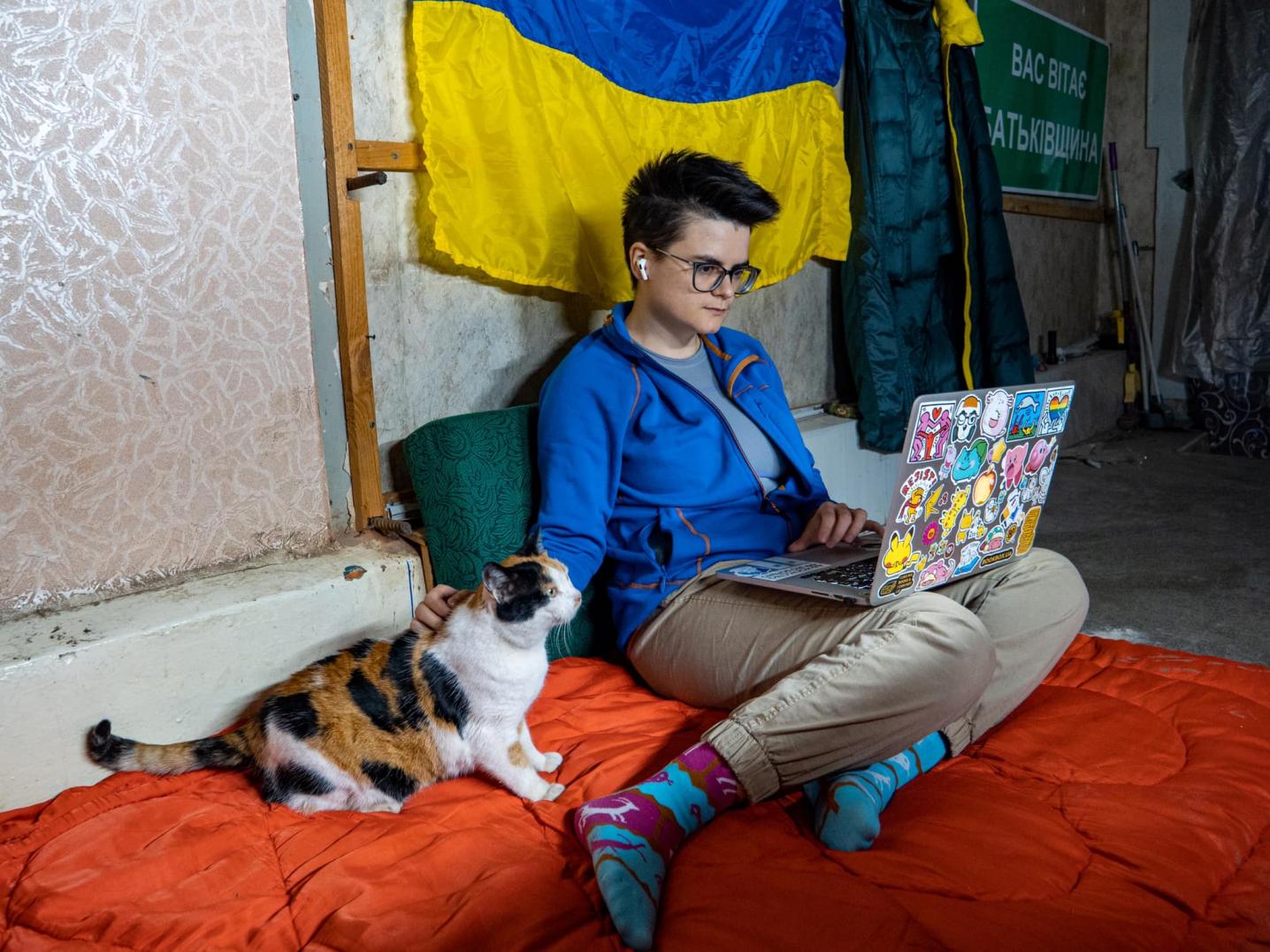
Polytopia event
The Polytopia residency was the second remote residence with Olia and Nana and was supposed to close with a presentation on the 24rd of February. Yoko explains that Nana and Olia were preparing their presentation until the bombs started at 5 o'clock in the morning, 12 o'clock in Japan. This turn of events required a quick decision to be made: “Everybody agreed that we want to make the event happen in a more safe condition. So we postponed it.”
Some weeks later, another opportunity came for the two young artists to deliver their message, at the EUNIC Japan event 'Give Artsists a Voice' which took place with support of the Dutch embassy in Tokyo on the 15th of March. Ukrainian artists based in Japan and outside of Japan came together; Olia read her words and texts from the shelter and Nana created a performance based on a Ukrainian folk song.
Preparing for this event was difficult. Away from her loved ones and worrying about their safety and wellbeing, Nana was going through a very challenging time. During the first weeks, she was very emotional and depressed. Still, Yoko believes that this performance gave both Ukrainian artists an outlet to go through some emotions in these trying times. It was an opportunity to present their ideas and pull themselves together, interact with people and feel their support.
Nana also designed the event's poster. She used the Kyiv font and colour gratulation to express the metal burn that reflects the colours of her country.
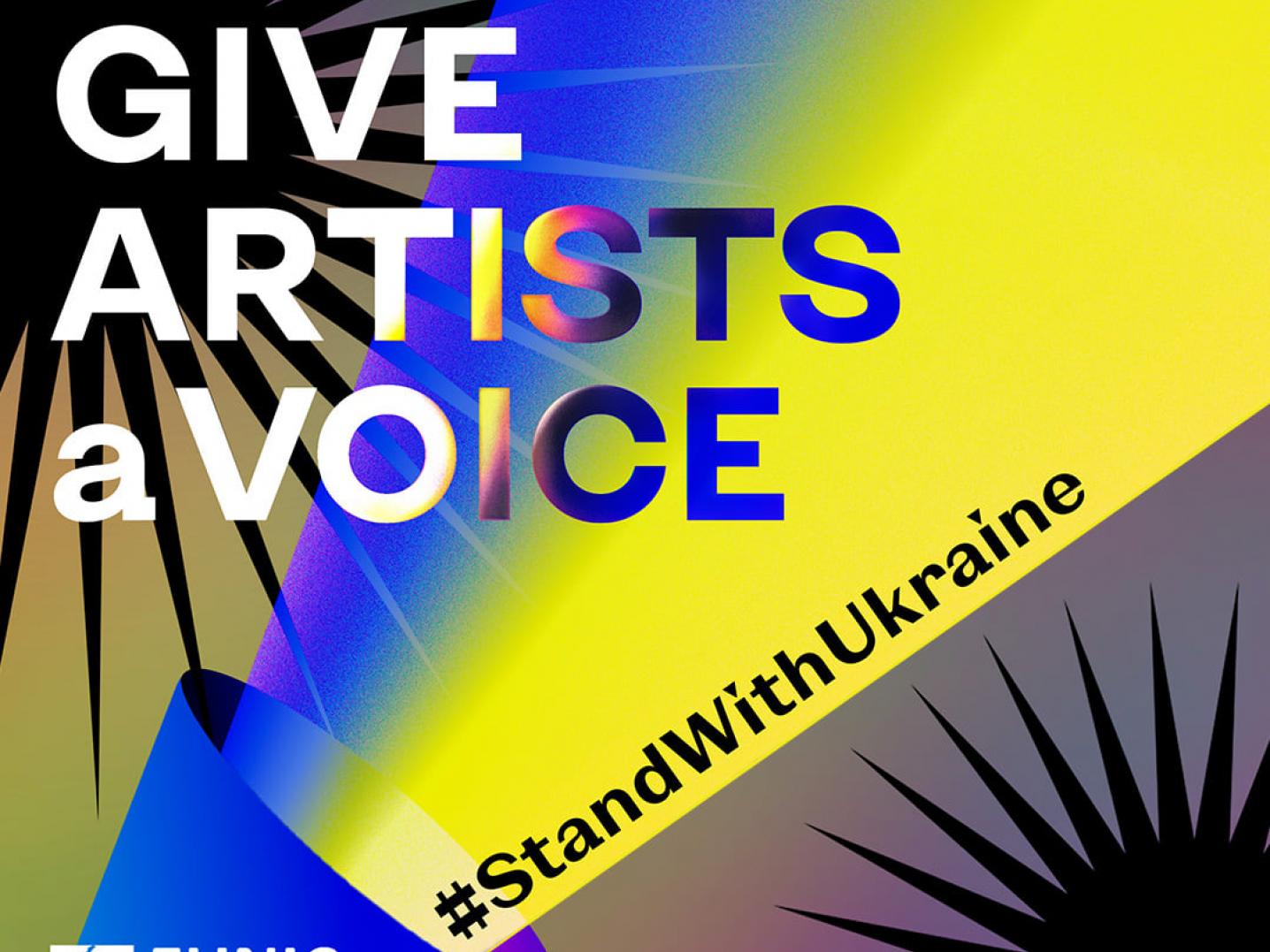
Raising funds
"Being a friend is the first thing. And to create a safe space for everybody, whatever their social or political condition," Yoko states. Furthermore, she is very active on the residency's social platforms, posting about what is happening in Ukraine and sharing solidarity messages, as well as aspects of Ukrainian culture. She is also raising funds for Ukrainian organisations and initiatives. “People in the cultural sector are doing all kinds of different things. The artists there are working for the military, others as volunteers to provide food to people and distribute daily supplies, as well as trying to protect cultural artefacts and artworks," she says.
Olia wants to share the reality of what is happening in Ukraine to “spread their words,” and in turn, Yoko takes on the mission to spread Olia's message in Japan. “Recently we had a meet–up with a number of Japanese poets who are translating Olia's works into Japanese, and some other languages such as Korean and French.” The group also organised a podcast in collaboration with the Japanese poet Ryoichi Wago, who read Olia's texts in Japanese, and Olia read them in Ukrainian. Yoko adds proudly: “more than five thousand people already listened to it!”
Working with Ukraine
Are you interested in working with Ukraine or in supporting its cultural sector? Feel free to contact our advisor, Tijana Stepanovic, visit our country page for Ukraine or watch the video below.
If you want to know more about artist residencies, feel free to contact our advisor, Heidi Vogels.
